I am using frama-c Aluminium-20160502 version and I want to find out the dependencies in a large program. When using the option -deps in the command line I found some dependencies are missing. In particular when several conditions are joined in one if, the dependency analysis stops whenever one condition is false. In this example here:
#include<stdio.h>
#include<stdbool.h>
/*Global variable definitions*/
bool A = true;
bool B = false;
bool C = true;
bool X;
bool Y;
bool res;
void main(){
if (A && B && C) {
res = X;
}else res = Y;
}
when I try: frama-c -deps program.c
frama shows the following dependencies:
[from] ====== DEPENDENCIES COMPUTED ======
These dependencies hold at termination for the executions that terminate:
[from] Function main: res FROM A; B; Y
[from] ====== END OF DEPENDENCIES ======
so it does not reach the condition C because already B is false.
I wonder if there is a way to tell frama to compute all dependencies even if the condition is not fulfilled. I tried with the option -slevel but with no results. I know there is a way to use an interval Frama_C_interval(0,1) but when I use it the variable using this function is not shown in the dependencies. I would like to get X and Y dependent on A,B,C and res dependent on A,B,C,X,Y
Any ideas?
